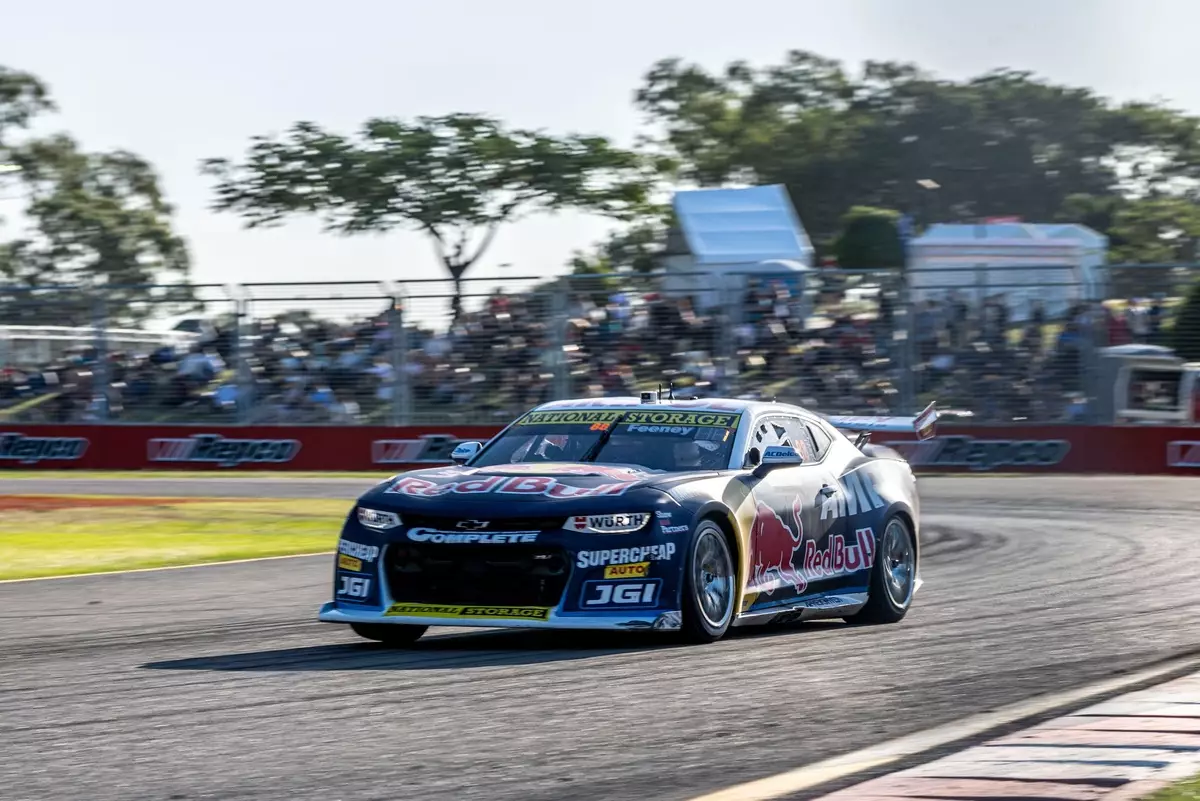The third and final race of the Townsville Supercars round proved to be an electrifying showcase of tactical brilliance and raw talent. Broc Feeney, driving with unwavering confidence from pole position, demonstrated the importance of not just speed but strategic finesse in extracting maximum performance. From the outset, Feeney’s Chevrolet Camaro showcased superior handling and tyre management, setting the pace and establishing himself as a clear front-runner. However, beneath this apparent dominance lay a complex chess game, wherein daring pit stops and timing decisions could tilt the outcome—an aspect that teams and drivers carefully navigated.
Cam Waters, from Tickford Racing, epitomized this aggressive approach. Opting for a bold undercut on lap 15—well ahead of many competitors—he gambled on early pit stops to leapfrog ahead. This move allowed Waters to seize the lead temporarily, demonstrating that strategic risk can sometimes pay dividends in racing when executed flawlessly. Yet, as the race progressed into its second stint, it became apparent that speed and tyre degradation favored Feeney’s more balanced approach. Waters’s initial advantage waned, slipping from front to third position, as his car struggled to maintain the pace needed to defend his position against the relentless challenge of Will Brown.
The Power of Resilience and Consistency in the Lead
Broc Feeney’s ability to adapt and maintain relentless pressure was the defining element of his victory. After losing the lead briefly to Waters, Feeney responded with resolve, executing a strategic second stint that re-asserted his dominance. His team’s calculated decision-making paid off, culminating in a commanding lead of over three seconds by the finish line. Feeney’s performance illustrates that in modern Supercars racing, speed alone cannot guarantee victory; strategic precision and mental toughness are equally critical.
Will Brown’s second-place finish underscored the significance of perseverance. Starting the weekend far down the grid, Brown’s progress through the field was remarkable, culminating in a well-earned podium. His commentary highlighted that, despite lacking exceptional pace in qualifying, tire management and racecraft allowed him to capitalize on the opportunities presented. Brown’s emergence as a consistent contender reinforces the importance of resilience in a series where circumstances can shift rapidly, and with strategic patience, even the most modest starting positions can lead to podium finishes.
Meanwhile, Waters’s post-race decline exemplifies the risks of aggressive strategies. Despite his early gains, his second pit stop failed to produce the same advantage, and his car’s diminishing speed allowed Chaz Mostert to overtake him in the closing laps. Such setbacks reveal the fine margin by which race strategies are won or lost—sometimes a daring move can backfire if conditions change or execution falters.
Implications for the Championship and Future Races
Feeney’s victory further cements his status as a formidable title contender. Increasing his championship lead from 183 to 220 points, his domination this weekend underscores a rising confidence and technical mastery. His recent form—claiming nine wins in twelve races—sets a daunting benchmark for rivals and signifies a potential turning point in the 2025 Supercars season. His combination of calculated risk-taking and consistent execution reveals a driver operating with a maturity well beyond his experience.
The race also highlighted the importance of team coordination and adaptability. The technical hiccup experienced by Grove Racing’s Payne and Allen, who faced delays caused by a new fuel system, serves as a reminder that innovation in racing technology, while promising, can introduce unexpected challenges. The ability to swiftly adapt to such issues is just as vital as pure speed or strategy.
Looking ahead, the series will head to Queensland Raceway, where the stakes will escalate further. With Feeney’s confidence soaring and his rivals scrambling for answers, the upcoming race promises to be a high-octane clash of strategy and speed. For fans and analysts alike, this season exemplifies that in Supercars racing, victory belongs not just to the fastest but to those most adept at navigating the complex interplay of tactics, technology, and mental resilience.


Leave a Reply